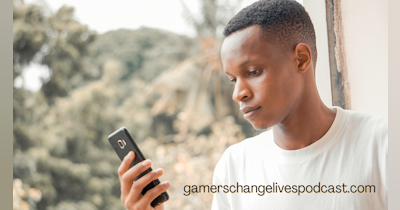5 Misconceptions About Esports
Esports has gradually become a niche sector in the gaming industry that has won over a good number of people, seeing that the video game industry has become one of the largest industries, passing the movie and sports industry combined. It’s made professionals in competitive video gaming, with life changing prize pools that have their names spread all across the globe.
The issue however is the tags people/media give to this sector, which is not surprising seeing the swarms of people signing up to become pro gamers. The myths however, need to be debunked because this is not only a livelihood to some, but a career to many, which is helping them and other people in the gaming community impact lives around them.
Let’s look at some of the myths and misconceptions surrounding gamers and the esports sector:
- Esports is not a sport: Esports involves video games (well obviously) and gameplay, and it is to some extent expanding market awareness, yes. But this has become a real sport, with athletes wearing brand uniforms, playing for prize money on regional and international fronts as well as signing endorsement deals with affiliated brands. With names such as H&M, Nike, Louis Vuitton, and Under Armour jumping into the endorsement deal pool, it is clear that other brands want to be involved with the industry and take it to heights where this can be globally accepted as the other physical medal sports such football and basketball are. The latest update with esports and medal sports is that it is soon to be accepted as a medal sport, since the 2022 Asian Games recognizes it as such. Esports is also open to other gamers who want to improve their gameplay skills as they stream live from YouTube and Twitch to learn gamers’ techniques, and is now an arena for both community and business.
- A qualification in esports is just playing games: Just like traditional sports, the players are only one aspect of the industry – coaches, referees, team psychologists, agents, PR, journalists are among an array of roles who make up this industry, and just like them, that is the case in esports. Playing games is not the prerequisite to qualify for esports; there are roles such as commentary, VOD reviews and analysis, content creation and event management, so limiting it to just playing games is not the way. The Esports BTEC aims to give students insight on what roles there are in esports, and you could make entry into this field without having to be a pro gamer necessarily.
- Esports is a fleeting industry: This is untrue. In fact, esports has surpassed many traditional sports in the aspects of revenue and viewership. According to Rethink Research, esports is said to be projected to make about $5B+ in a few years to come, with stats from McKinsey & Company showing that the esports industry made about $1.1B in revenue in the year 2020. Esports leaderboards are showing athletes earning over a million dollars in prize money, and earning income from their Twitch and YouTube channels as they curate ads and run commentary.
- People working in the esports industry are all young and inexperienced: It is a common misconception that everyone in esports is fresh out of college and/or probably younger than 20 years. But the truth is there are actually people working in esports in their late 20s, 30s and beyond, who are offering skills in leadership and management as well as game development, coaching, marketing, event organizing and more, and these are professionals offering such services. So it’s not just kids playing games, but a world of its own showing you departments and roles that you would be interested in should you do a little research on this.
- Encouraging the use of video games is bad for the health of young people: Just like you playing football all day and picking up injuries, you are likely to experience the same thing should you play video games all day. However, video games played in moderation can boost a wide range of benefits. With a balanced lifestyle of physical exercise routines, good diet and eating habits, enough sleep, you can have aspects such as communication and teamwork skills boosted, as it has been proven in students with their reading levels, concentration levels and attendance boosted.
Quite a lot to unpack isn’t it, as there are more common misconceptions to debunk, but for now if you thought about esports these ways, well you have your explanations now. A little research can change a lot with the way you view the esports industry, and who knows? You could become a strong advocate and potential professional in the field offering mentorship and boost the industry’s numbers.
For Gamers Change Lives Podcast
Jeffrey Osei-Agyeman
21st January, 2023.








